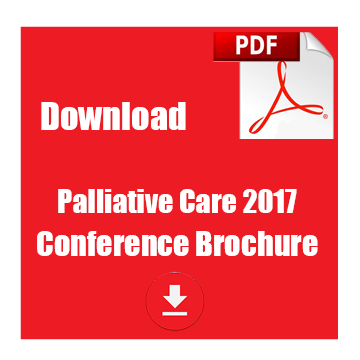
Esther Nafula Wekesa
Oxford Brookes University | Kenya
Title: Patient’s attitudes towards advance care planning: Comparison of high income economies versus low income economies
Biography
Biography: Esther Nafula Wekesa
Abstract
Statement of the Problem: Palliative care involves understanding individual and cultural preferences of patients. Patient autonomy is paramount and this involves making decisions concerning treatment, place of care, as well as, end of life care. Evidence suggests that advance care planning improves communication between patients, families and health care providers, which reduces anxiety and improves quality of life. Access to healthcare, as well as, palliative care is limited in low income economy countries and there is limited knowledge on advance care planning. Discussions of prognosis and advance directives are rare leading to inappropriate aggressive treatment at the end of life. Comparison of studies done in high income and low income societies is my focus as I aim to answer the research question: How do patients with life limiting illnesses in low income economies perceive advance care directives at the end of life compared to those in high income economies?
Methodology: Referenced papers were identified by searches of PUBMED and MEDLINE limited to English language using key words: Advance care planning, advance directives, end of life care and low income economies. Only papers published between 1st January 1996 and 31st December 2016 were included. Of the 10 identified papers 3 were selected as the discussed studies on patients’ attitudes towards advance care planning at the end of life phase.
Results: The 3 selected papers discussed in depth qualitative studies were done in Africa, as well as, in the developed world. In the South African study it was evident that participants thought advance care planning was relevant in their set up. Health care preferences however depended on available resources. In the other two studies approximately 80% of patients thought advance care planning was very relevant and needed to be discussed with their physicians.
Conclusion: Advance care planning is important to all patients with life limiting illnesses. Many patients are willing to discuss with their doctors on issues of prognosis and advance directives. In high income economy countries, advance care planning is more accessible as compared to low income economy countries. In both regions however, these discussions are influenced by culture and availability of resources.

